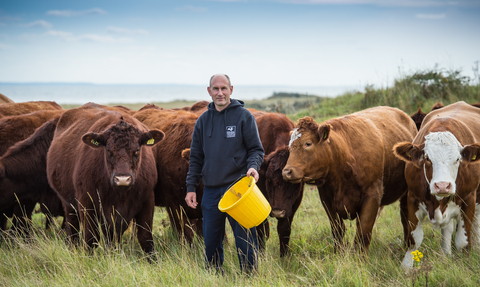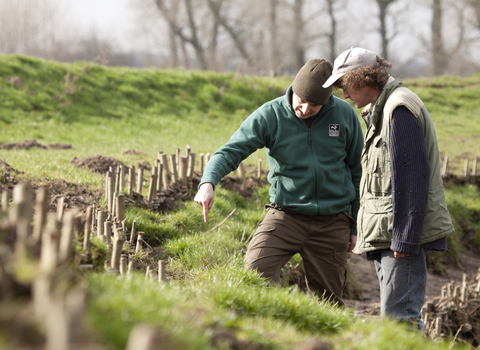Local Wildlife Sites (https://www.wildlifetrusts.org/wildlife/protected-areas/local-wildlife-sites)
Biodiversity Benchmark (https://www.wildlifetrusts.org/partnerships/working-businesses/biodiversity-benchmark)
Wildlife Trust consultancies (https://www.wildlifetrusts.org/wildlife/protected-areas)
Our partners (https://www.wildlifetrusts.org/node/3873)
Managing land
The Wildlife Trusts look after more than 100,000 hectares of land including all types of British habitat. Since their inception Wildlife Trusts have worked with local landowners and farmers to care for land in a way that benefits wildlife. Combining local knowledge, skills and expertise with an understanding of current legislation and funding, our specialist staff can help you to get the most for wildlife from your land. We provide advice to farmers, local community groups, councils, other environmental organisations. Some Wildlife Trusts run environmental consultancies that provide advice to businesses.
What Wildlife Trusts can offer
- Environmental Stewardship Advice
We offer support and advice on both Entry Level and Higher Level Stewardship Schemes, whether it’s assisting new applicants to navigate the processes involved or providing continued support to existing agreement holders. As a direct result of this advice, we help to bring millions of pounds to the rural economy every year
- Practical Advice and Training
We provide in-depth advice and management plans on habitats from hay meadows to upland wetlands, share expert knowledge for the management of specialist species, deliver workshops to encourage the discussion of ideas, and assist with land management using volunteers. We also conduct thousands of advisory visits every year, covering topics such as resource protection, livestock management and agri-environment schemes.
- Advice on Local Wildlife Sites
We work with landowners responsible for Local Wildlife Sites (LWS), delivering whole farm advice as well as survey and grant application assistance. There are around 40,000 LWS’s in England covering more than 700,000 hectares of land, and two thirds of these important sites are in private ownership. They not only provide refuges for a range of wildlife, but also act as stepping stones to link nationally important areas. Lack of management is the main cause of loss and damage to these critical sites.

Matthew Roberts
For advice on managing your land there’s a Wildlife Trust local to you.
It was really about turning conventional thinking on its head – rather than getting the land to suit the cattle, let’s find a breed of cattle that suits the land.
People know when they come to buy beef from us that the meat has come from animals that are helping to support this conservation work.The Grange Farm, Cheshire
#form

